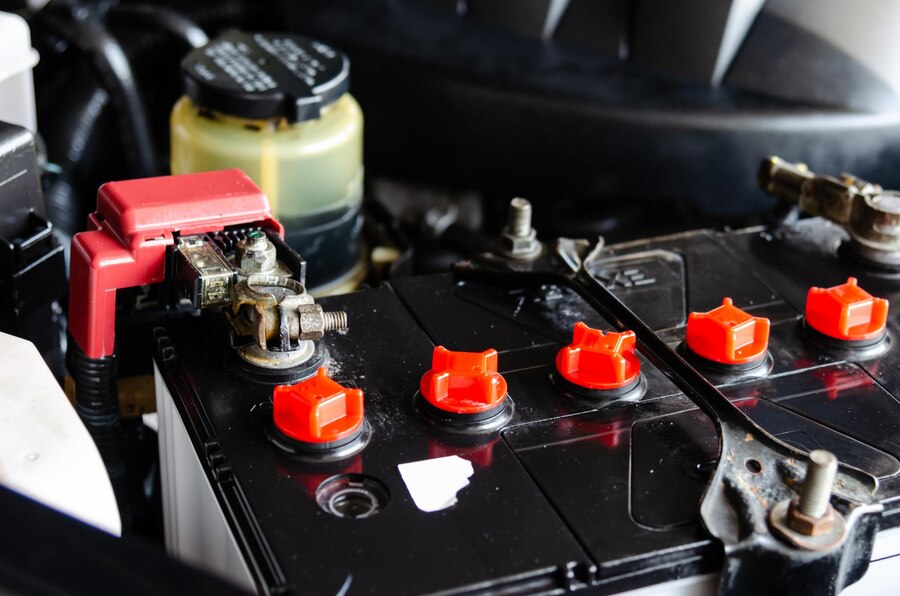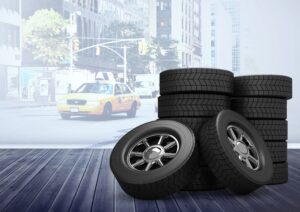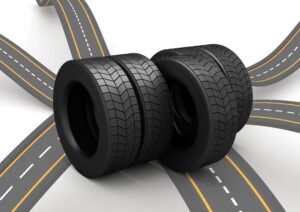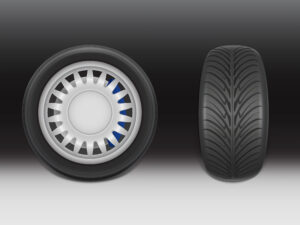The Ultimate Guide to Car Battery Types: Features, Categories, and Choosing the Best for Your Vehicle

Choosing the right car battery type is essential for ensuring your vehicle runs smoothly, efficiently, and reliably. With so many types of car batteries available, understanding the differences between them is crucial for making an informed decision that best suits your needs. Whether you’re in need of a replacement or just curious about the options, selecting the right car battery type will impact not only the performance of your vehicle but also its longevity.
In this guide, we will cover the most common car battery types and features, compare their benefits and drawbacks, and help you determine the best battery type for your car. Whether you are driving a traditional internal combustion engine, a hybrid, or an electric vehicle (EV), understanding different car batteries will ensure that you make the best choice for your vehicle’s needs and your budget.
Why Understanding Car Battery Types Matters
Understanding car battery types is essential for several reasons. The right battery can enhance the performance, safety, and longevity of your vehicle, while a poorly chosen battery can result in reduced performance, higher maintenance costs, and unnecessary stress. Let’s look at why it matters to know different car batteries and how they can impact your car:
- Vehicle Performance: The best battery type for your car ensures that your car starts smoothly and performs efficiently, especially in extreme conditions like very cold or hot weather.
- Longevity: Different car battery categories offer varying lifespans. A more durable battery will save you from having to replace it frequently, providing better long-term value.
- Maintenance Needs: Some car battery types and features require more maintenance than others. A sealed or maintenance-free battery, for example, will require less attention, making it a more convenient choice for many drivers.
- Cost Efficiency: While some types of car batteries may have a higher upfront cost, they can often save you money in the long run due to their longer lifespan and better performance.
- Environmental Considerations: Many newer car battery categories, like lithium-ion and solid-state batteries, are designed with the environment in mind, offering cleaner, greener alternatives to traditional lead-acid batteries.
Understanding these factors will help you choose the best battery type for your car, ensuring a reliable and cost-effective solution that meets your vehicle’s specific needs.
Overview of Car Battery Categories
Before diving into the specifics of the different car batteries, it’s helpful to look at the broader car battery categories. These categories group batteries based on technology, design, and applications, each offering unique benefits:
- Traditional Lead-Acid Batteries: The most commonly used car battery types, especially in older vehicles, these are affordable but require more maintenance than newer options.
- Advanced Technology Batteries: This category includes lithium-ion batteries, which are ideal for electric and hybrid vehicles due to their lightweight design and high energy density.
- Sealed Lead-Acid Batteries (VRLA): These include Gel Cell and AGM batteries, which are sealed to prevent leakage and reduce the need for regular maintenance.
- Deep Cycle Batteries: These batteries are designed for sustained energy output, making them ideal for specialized vehicles like RVs and marine vessels.
- Emerging Technologies: Sodium-ion and solid-state batteries are gaining traction as more sustainable and efficient alternatives to traditional battery types. These newer technologies promise to change the future of car batteries.
Each category has its own set of strengths, which will be explained further in the following sections. By understanding the options available in car battery types, you can choose the one that fits your vehicle and driving needs.
Common Car Battery Types and Features
Now that we’ve covered the car battery categories, let’s explore the specific types of car batteries and their features in detail. Each of these batteries has been designed for different applications, making them suitable for a wide range of vehicles.
1. Flooded Lead-Acid Batteries
Flooded lead-acid batteries are the oldest and most traditional of all car battery types.
- Features: These batteries use lead plates submerged in an electrolyte solution made of sulfuric acid and water. They are typically more affordable but require maintenance, such as checking and topping up the electrolyte levels.
- Pros: Cost-effective and easy to find; ideal for older vehicles with minimal electrical requirements.
- Cons: These batteries require more maintenance and are less efficient in extreme weather conditions. Additionally, they have a shorter lifespan compared to newer technologies.
- Best For: Traditional vehicles and those with fewer electrical demands.
2. Lithium-Ion Batteries
Lithium-ion batteries are the future of car battery types, particularly for electric vehicles (EVs) and hybrid vehicles.
- Features: Known for their high energy density, lithium-ion batteries are lighter, smaller, and more powerful than traditional lead-acid options. They also have a much longer lifespan and faster charging capabilities.
- Pros: Extremely durable, fast-charging, and require minimal maintenance. They are lightweight and compact, making them ideal for modern electric and hybrid vehicles.
- Cons: Higher initial cost, although the investment is usually worth it due to the battery’s long-term efficiency.
- Best For: Electric vehicles, hybrid vehicles, and those who want high performance and reliability.
3. Valve-Regulated Lead-Acid (VRLA) Batteries
VRLA batteries, which include both Gel Cell and Absorbent Glass Mat (AGM) designs, offer a sealed construction that prevents acid leakage and reduces maintenance.
- Features: These batteries are sealed, so there is no need for regular topping off of the electrolyte. AGM batteries, in particular, offer excellent power performance and are designed for high-demand applications.
- Pros: Sealed design prevents spills, minimal maintenance required, and they are often more resistant to vibrations.
- Cons: More expensive than traditional flooded lead-acid batteries. They also have a limited lifespan compared to lithium-ion batteries.
- Best For: Luxury cars, vehicles with high electrical demand, and those in need of reliable, maintenance-free batteries.
4. Deep Cycle Batteries
Deep cycle batteries are designed to provide long-lasting power over an extended period of time, making them perfect for vehicles that require constant energy, such as RVs and boats.
- Features: These batteries are built to discharge a significant portion of their capacity and still function effectively. Unlike regular car batteries that provide quick bursts of power, deep cycle batteries offer consistent energy output.
- Pros: Long-lasting, perfect for applications requiring sustained power, and designed to withstand deep discharges.
- Cons: Not ideal for vehicles that require quick starts or high bursts of power, such as traditional cars.
- Best For: RVs, boats, and off-road vehicles.
5. Sodium-Ion and Solid-State Batteries (Future Technologies)
Sodium-ion and solid-state batteries represent the future of car battery types, offering environmentally friendly alternatives to lithium-ion technology.
- Features: Sodium-ion batteries use sodium rather than lithium, which is more abundant and cost-effective. Solid-state batteries replace liquid electrolytes with solid materials, making them safer and more efficient.
- Pros: Safer, more sustainable, and potentially cheaper than lithium-ion batteries. These technologies could revolutionize the electric vehicle market in the coming years.
- Cons: Currently, they are still in the developmental stage and are not yet widely available for consumer use.
- Best For: Future electric vehicles and eco-conscious drivers looking for greener alternatives.
Factors to Consider When Choosing a Car Battery
Choosing the right car battery type goes beyond just comparing prices. There are several important factors to consider:
- Vehicle Compatibility: Ensure the best battery type for your car matches its make, model, and electrical needs. Using the wrong battery can lead to poor performance or even damage your vehicle’s electrical system.
- Climate and Weather: Different car battery categories perform better in different conditions. If you live in a colder climate, for instance, choose a battery with higher cranking power, such as a VRLA AGM battery.
- Power and Energy Requirements: If your vehicle has a lot of electrical accessories (like air conditioning, power windows, or advanced infotainment systems), opt for a battery with higher power capacity.
- Maintenance and Lifespan: Consider the maintenance requirements and expected lifespan of each battery. Lithium-ion batteries and VRLA AGM batteries are low-maintenance, while traditional flooded lead-acid batteries may require more upkeep.
Why Choose KwikFix Auto for Your Car Battery Needs?
At KwikFix Auto, we offer a diverse selection of car battery types suited to all vehicles, from traditional cars to hybrids and electric vehicles. Our team of experts will help you find the best battery type for your car, ensuring long-lasting performance and efficiency.
Why choose KwikFix Auto?
- A wide range of different car batteries from top brands like Amaron, Exide, and SF Sonic.
- We cater to all types of vehicles, including luxury models and performance cars.
- Convenient locations in Mumbai, Thane, and Navi Mumbai for quick access to premium battery options.
- Excellent customer service, battery check-ups, and professional recommendations to help you choose the perfect battery.
Call-to-Action
Don’t wait until your battery fails! Visit KwikFix Auto today and discover the best car battery types for your needs. Whether you’re in Mumbai, Thane, or Navi Mumbai, our experts are ready to help you choose the right car battery for your vehicle. Call +91 9950345345 or visit our Battery Page for more information!
Frequently Asked Questions
Q1. What is the best car battery type for cold weather?
A1. In cold weather, VRLA AGM batteries and lithium-ion batteries provide excellent performance as they offer higher cranking power.
Q2. How long does a typical car battery last?
A2. Depending on the type, a car battery can last anywhere from 3 to 10 years. Lithium-ion batteries tend to last the longest.
Q3. Are there maintenance-free car batteries?
A3. Yes, lithium-ion and VRLA AGM batteries are both considered maintenance-free, making them ideal for people who prefer convenience.
Q4. What is the most affordable type of car battery?
A4. Flooded lead-acid batteries are typically the most affordable car battery types available.
Q5. Can I use a deep cycle battery in my car?
A5. While deep cycle batteries are not suitable for starting engines, they are great for RVs and boats.
Q6. How do I know which battery is right for my car?
A6. Check your vehicle’s manual or consult with a professional to ensure you choose the best battery type for your car.
Q7. Are solid-state batteries available for cars?
A7. Solid-state batteries are not yet available for general consumer use, but they are expected to be a major advancement in the future of electric vehicles.
Q8. What is the lifespan of a lithium-ion battery?
A8. Lithium-ion batteries typically last between 8 to 10 years, making them a reliable option for electric and hybrid vehicles.
Related Articles
Car AC Gas Filling Cost | Electric Car Battery Capacity | How Car AC Works | How to Clean Car AC Filter | Car AC Repair Cost | AC Chair Car vs Executive Chair Car | Which Gas is Used in Car AC | Does AC in Car Consume Fuel | Why My Car AC is Not Cooling | Xylo Car Mileage with AC





